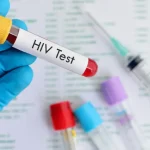The government and the Ghana Union of Traders Association (GUTA) have agreed on some concessions for members of the association to re-open their shops after the second day of shop closures in Accra.
Before the closure of these shops, GUTA called on the government to find solutions to challenges they were facing due to the current economic climate, which were not addressed.
However, on Thursday, October 20, 2022, the Deputy Minister of Trade and Industry, Michael Baafi, announced that the government has decided to suspend the inspection of tax payments by Ghana Revenue Authority (GRA) officials and the pegging of the exchange rates for a period of three months at ports for importers.
These were some major concerns raised by GUTA during their protests.
Mr Baafi made this known during an orientation and signing ceremony for the Ghana Economic Transformation Project (GETP) beneficiaries in Accra.
For the past two weeks, the president of the GUTA, Dr. Joseph Obeng, has raised so many concerns about how the depreciation of the cedi is affecting businesses in Ghana.
He also blamed the government for allowing foreigners to take over local industries reserved for Ghanaians without finding solutions.
On October 11, members of the Adum Traders Association in Kumasi embarked on a sit-down strike due to the taxes by the GRA.
According to business owners, the recent introduction of the e-invoicing system has worsened their plight.
These and many other reasons compelled GUTA to declare a widespread protest on Wednesday.
GUTA instructed its members and other businesses to close all shops in the country due to the depreciation of the cedi, inflation rate, lending rate, and cost of fuel in the country till Monday, October 24, 2022.
This strike action was soon followed by members of the Importers and Exporters Association, and the Food and Beverages Association of Ghana (FABAG).
















